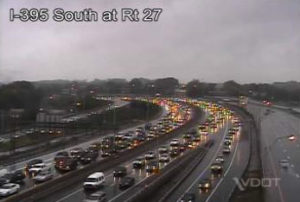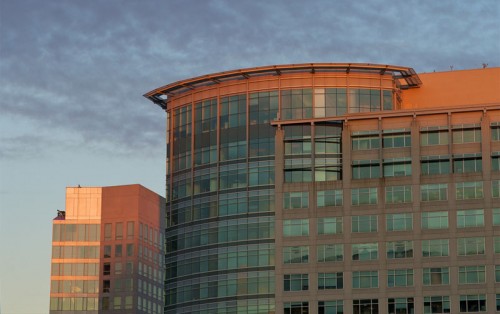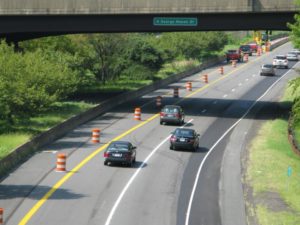 The Washington metro area is tied with Chicago for having the country’s most congested roads.
The Washington metro area is tied with Chicago for having the country’s most congested roads.
According to a new study, auto commuters in Washington and Chicago spend about 70 hours — nearly three whole days — of extra time in the car thanks to traffic. We beat out the famously congested Los Angeles area, where commuters only spend 63 extra hours in the car each year.
Washington also ranked #1 for “fuel wasted per peak auto commuter” and #2 for “commuter stress” and “cost of delay per peak hour auto commuter” (at $1,555 per year).
In the wake of the study’s release, the Northern Virginia Transportation Alliance, a group that supports additional spending on highway capacity and other transportation projects, issued a snarky press release “congratulating” the region for the distinction.
“Persistence pays off!” the Alliance proclaimed. “Years of state fiscal neglect and local opposition to planner’s priorities have finally moved the Commonwealth’s economic engine, Northern Virginia, to the top of the congestion-delay heap.”
The news comes less than two weeks after Virginia Gov. Bob McDonnell (R) announced plans to roll out billions in additional transportation spending.
Researchers with the Texas Transportation Institute, which conducted the study, came up with a number of general strategies to help alleviate traffic congestion, including:
- “Get as much use as possible out of the transportation system we have.”
- “Add roadway and public transportation capacity in the places where it is needed most.”
- “Change our patterns, employing ideas like ridesharing and flexible work times to avoid traditional ‘rush hours.'”
- “Provide more choices, such as alternate routes, telecommuting and toll lanes for faster and more reliable trips.”
- “Diversify land development patterns, to make walking, biking and mass transit more practical.”
- “Adopt realistic expectations, recognizing for instance that large urban areas are going to be congested, but they don’t have to stay that way all day long.”



